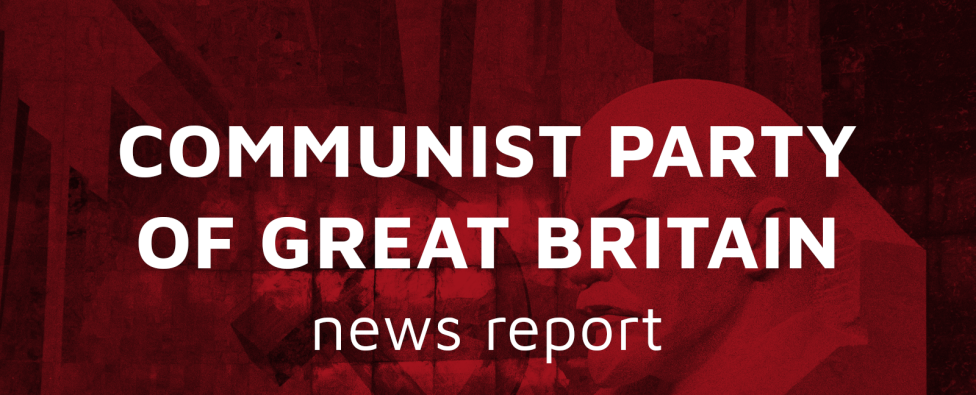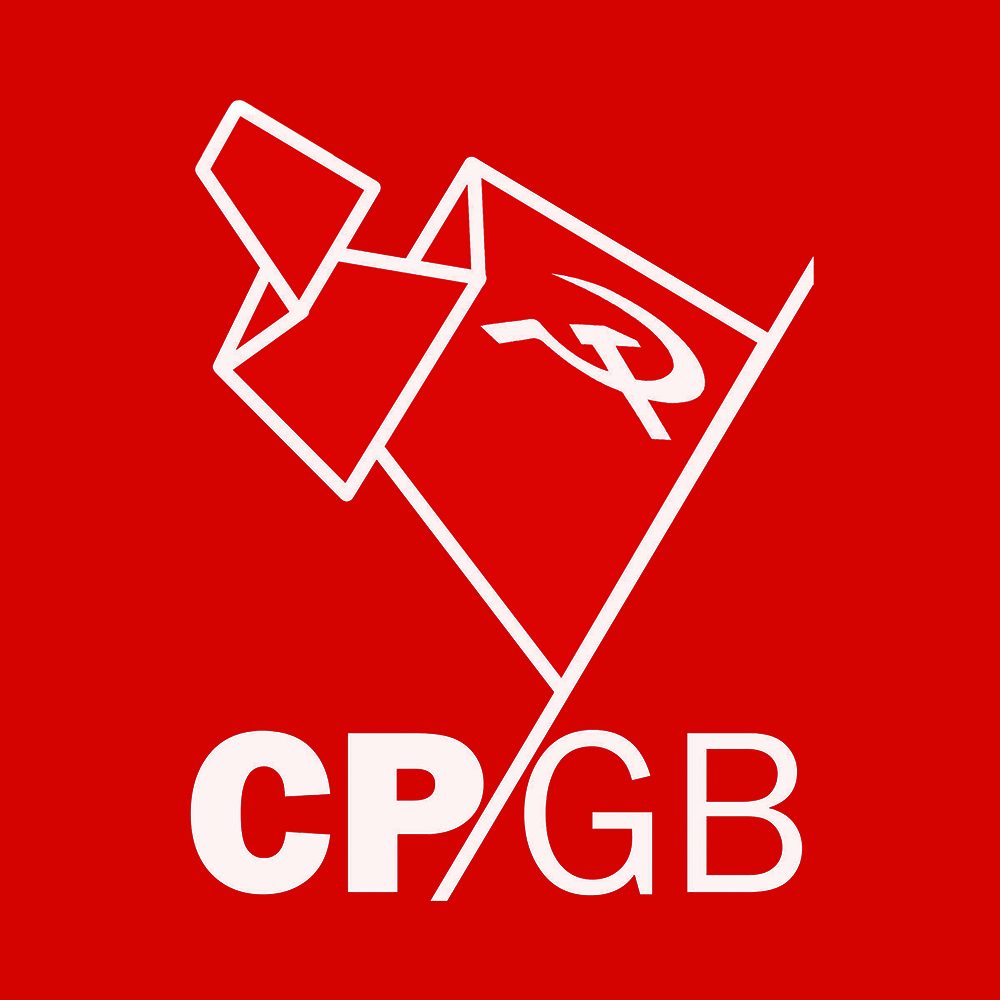
Report on the March 12 CPGB aggregate which debated the war in Ukraine and proposed amendments to the Perspectives 2022 document. This report was originally published in WW1387, which can be found here
Drawing clear lines on Ukraine
The aggregate discussed two matters: firstly, and, of course, most importantly, the war in Ukraine; and. secondly, amendments to the 2022 perspectives document, as agreed at our annual general meeting (for report and full text, including amendments, see Weekly Worker February 17).
The discussion on Ukraine was introduced by Jack Conrad, who began by stating that he expected the Russians to take the south of the country fairly soon: although Ukraine is receiving large-scale supplies of Nato weaponry, Russia has air superiority and the west will most likely not intervene to change that. The media are talking about Ukraine “fighting a gallant war of self-defence” against the Russian bully, but as Marxists we need to place things in context.
Comrade Conrad traced things back to the collapse of the Soviet Union and US grand strategy. With the pivot to the east the aim is to surround China and break it apart: Tibet, Hong Kong, Taiwan, Xinjiang. What we are seeing with Ukraine is part of that grand strategy. And, of course, Putin’s invasion played straight into the hands of the US. Not only have Franco-German plans for European unity been scuppered but Russia looks like it is going to be bogged down in an unwinnable war whose probable outcome will be regime change in Moscow. Ukraine has a population of over 40 million and it goes without saying that the great mass of them are determined to resist Putin’s forces. Next on the list, however, will be China.
If we look at things in that context, it is clear that to take a pro-Ukrainian stance is to take a pro-Nato stance. Group such as the Alliance for Workers’ Liberty, Anti-Capitalist Resistance and the Labour Representation Committee are out and out social-imperialists, while the Morning Star’s CPB and Stop the War Coalition make do with a cringing social-pacifism. If Nato was reset to the west, if Russia respected Ukraine’s territorial integrity, if, if, if … there could be peace in our time. A lie. Capitalism goes hand-in-hand with wars big and small. So while we can only but feel for the dreadful suffering of the people in Ukraine, we must draw clear lines of demarcation against not only the pro-Nato social-imperialists, but social-pacifist outriders to capitalism too.
What are Putin’s war aims? They have nothing whatsoever to do with deNazification. No, Putin wants to halt the eastern march of Nato and put together a neo-tsarist empire – unifying, at its core, Great, Little and White Russians. Such an entity might possibly have a chance of making it into the first ranks of the imperialist powers, but that is highly unlikely. Suffice to say, no genuine socialist can support Russia, which is after all an autocratic-capitalist regime.
In Britain there is something approaching war hysteria. Slogans such as ‘Russia out’ and ‘Refugees welcome here’ are not wrong in and of themselves. But if left at that they simply serve the dominant narrative of the ruling class and the political establishment. For us, the main enemy is at home. We are against Nato, against immigration controls … not only those directed at Ukrainians, but Syrians, Iraqis, Iranians, Kurds, Palestinians, Libyans, Afghans and other victims of imperialist wars, interventions and sanctions.
Crucially, we are for building a mass Communist Party. Only with such an organisation can we hope to win the battle for democracy and put an end to the capitalist system with its wars, economic exploitation and ecological destruction.
In the following debate Paul Demarty agreed that this was basically the correct approach. Russia has a weak economy with extractive industries and we should expect enormous economic disruption to the global economy. We must be prepared for things to get uglier. For his part Bob Paul stated that it is easy to be pro-Ukraine and anti-Russia, and pointed out how xenophobia is rising as a result. For example, Twitter seems to be encouraging hate speech towards Russians, and for Facebook it is not at all problematic to praise the fascist Azov Battalion. He agreed with comrade Conrad that “Our main enemy is at home”.
Speaking from the chair, James Harvey mocked the pretence of the US and its Nato allies to care so much about the Ukrainian people, when they do not even care about their own people.
Farzad Kamangar pointed out that a ‘no fly zone’ would actually escalate the war to involve neighbouring countries, such as Turkey and Poland – and possibly even result in the use of nuclear weapons. In the meantime there is open and systematic racism in the media discussion and treatment of refugees. For instance, there have been 34,000 deaths in Yemen because of the Saudi war and US blockade, while the number in Ukraine has been small in comparison.
Anne McShane gave evidence of her own work in Ireland with asylum-seekers from Syria and Iraq, who had very bad experiences in Ukraine, Hungary, etc. Such matters have been largely ignored in the western media. She agreed that we must highlight our demand for open borders.
Next was Mike Macnair, who spoke of the post-1975 US export of destruction. We should be calling for withdrawal from Nato – an organisation of aggression that should be dissolved. Comrade Macnair went on to comment on the dire situation of students in Britain, many of whom have been cut off from all support. He also noted that it had not previously been regarded as a war crime to target combatants when it means civilians will be killed too: the west is drawing a line in Ukraine that it did not draw in Afghanistan or Iraq, for instance.
In his response to the debate Jack Conrad stressed that we seem to be seeing a “revolution in warfare”, and pointed out that the war in Ukraine exposes the myth of small nations being independent. We need to think in global rather than local terms. As well as Sir Keir’s clampdown on the cowardly official ‘left’ MPs, we should expect a drive against left-led anti-war trade unions. Strikes defending workers from the cost of living crisis will be branded agents of Putin’s Russia.
Perspectives
The second session began with Ollie Hughes introducing four amendments to the previously agreed perspectives document.
The first was a proposed addition to “our strategic expectations” concerning the CPGB’s failure to recruit. Comrade Hughes claimed we have a “negative strategy” for recruitment, almost as though we are afraid of it. Far more energy must be put into this question, he stated.
Two other amendments concerned the CPGB and Weekly Worker websites. Both were inadequate, he stated, and we now have fewer comrades doing the work as well as differing points of view about how the websites should be improved. We concluded that we need a “web organiser”. Linked to this was the need for better archives. According to comrade Hughes, “An organisation that doesn’t care about its past doesn’t deserve a future.”
Mike Macnair responded on behalf of the Provisional Central Committee. He stated that, of course, we do want to recruit, but the left as a whole is lodged within a “milieu of defeat”, which makes recruiting more difficult now than previously. However, our main aim is the unity of the left within a principled, democratic centralist Marxist party.
Comrade Macnair pointed out that over the years we have been involved with numerous unity projects with good effect, including the Socialist Labour Party and Respect. We carried out vigorous work within Left Unity and most recently, of course, we have been involved with the Corbyn movement, when we prioritised Labour Party work.
Our top priority must be to produce the paper – “our collective political voice”. The fact that we manage to produce the Weekly Worker with such small numbers is “a small miracle”.
Comrade McShane agreed that we have “lost focus” on recruitment, although it was correct to recruit “on the basis of our programme”. She also agreed about the need to improve our websites: everyone is online now, but we do not have a clearly worked out strategy for introducing the programme in that way. Comrade Demarty too agreed that more focus on the web is needed.
Comrade Conrad stated that we actually have had a constant stream of possible recruits, but, of course, unlike, say, the Socialist Workers Party, we insist that members must be committed to the organisation. He was followed by Mike Macnair, who came in again to stress that it was essential to win the battle of ideas, which is vital to our strategy. He also thought that comrade Hughes’s amendments were insufficiently political.
Next up was Sarah Stewart, who spoke about “clicktivists”; Jim Nelson about how he was recruited; Gaby Rubin about the centrality of programme; Vernon Price about how it is important for the organisation to adapt to changing conditions. He also agreed that the Weekly Worker website was in need of improvement.
Comrade Hughes came in again to talk about web work – a “serious cornerstone of our project”, but we seriously need a new website. Back in 2011, he said, our agreed perspectives talked about exactly that, but it has not happened. As for recruitment, it is not a panacea but it is nevertheless essential.
Comrade Macnair summed up for the PCC. He pointed out that the essence of the left’s present difficulty is that the immediate fight in the Labour Party had been lost and now we need an understanding of where we go from here. Given the political situation we are in, none of the proposed amendments can solve the problem in and of themselves.
Comrade Hughes then summed up his position. He claimed that the way we handle human resources is a problem, but so is the general attitude of the leadership. There is the “existential threat” of what happens in, say, 10 years time. Our theory is excellent, but there is not enough focus to back it up. We are short of people to do the necessary work, so what are we going to do about it?
When it came to the vote, Bob Paul proposed that the four amendments be accepted “in principle” and a majority agreed with that in what was a clear vote.
